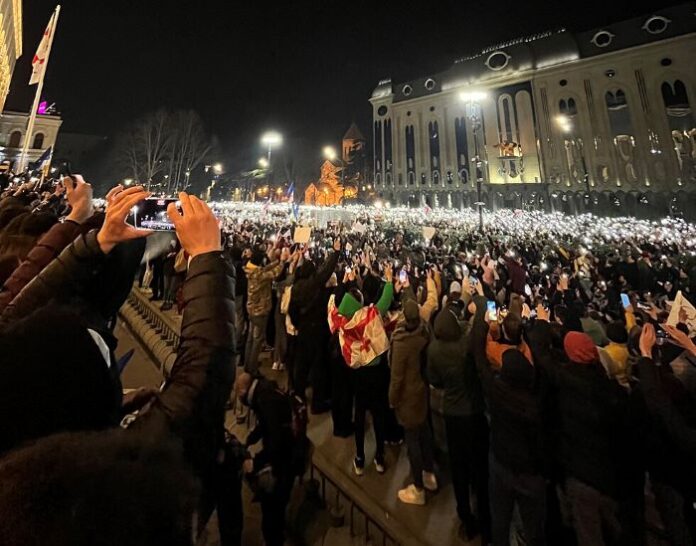The European Union has condemned the government of Georgia’s move to resurrect a bill that would brand organisations receiving more than 20% of their funding from overseas as “foreign agents”. It would require them to register and identify themselves as “pursuing the interests of a foreign power”.
On Wednesday, Georgia’s ruling party said it would reintroduce the legislation, a move which Moscow has applauded. Such was the outrage and protests generated when the draft legislation was initially proposed in March last year –opponents compared the proposed bill to laws being used to crack down on dissent in Russia — that the idea was dropped.
When granting Georgia candidate membership status last December, the EU made clear that progress would be subject to further reforms. Now, in its latest statement, the EU says it “regrets” the decision to re-introduce the bill, noting that it raises “serious concerns”.
Critics of the bill in Georgia have labelled it a “Russian law”, an apt if pejorative description, considering the widespread resentment in the country for Russia’s support of the breakaway regions of Abkhazia and South Ossetia. Kremlin spokesman Dmitry Peskov declared that critics of the draft law should “more actively explain the absurdity of considering this a Russian project”. He defended the proposed legislation, noting that Russia wants “stability and predictability” in Georgia.
While Russia and Georgia have fought over the separatist regions since the 1990s, and have no diplomatic relations, Tbilisi has strengthened its ties with Moscow since the latter’s invasion of Ukraine. So much so, in fact, that Western and domestic critics have accused the ruling Georgian Dream governing bloc of authoritarianism and of being too close to Russia, despite its insistence that it wants Georgia to join the EU and NATO.
Georgia’s opposition parties and activists have said any attempt to move forward with the proposed bill will prompt further mass protests, similar to those that forced the draft legislation’s withdrawal in March 2023.

